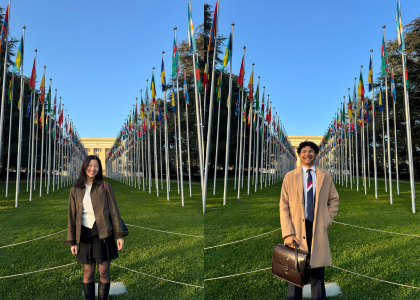
For Ellen Park '26 and Aniq Chunara '26, spending a semester in The Hague, Netherlands, was more than an ordinary academic experience, it was a transformative immersion into the hub of international justice.
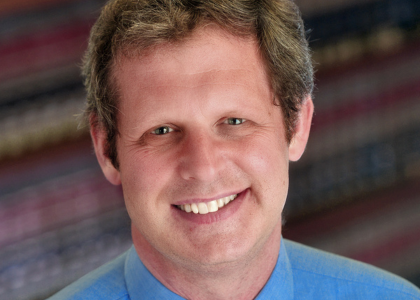
Eugene Volokh, the Gary T. Schwartz Professor of Law Emeritus at UCLA School of Law and Thomas M. Siebel Senior Fellow at the Hoover Institution at Stanford University, has spent decades examining First Amendment jurisprudence.
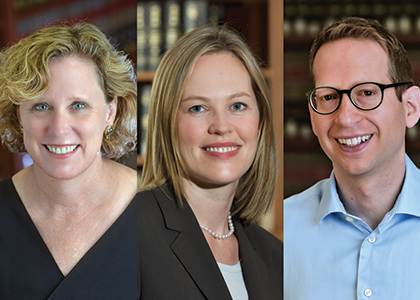
Three members of the UCLA School of Law faculty are featured in an essay that appears in the opinion section of The New York Times, which recounts the first 100 days of the second Trump administration. Ann Carlson, Ingrid Eagly, and Jon Michaels are among the 35 legal experts from around the country whom the Times quotes on matters ranging from the firings at independent agencies to President Trump’s clashes with the judiciary.
-
J.D Environmental Law
-
J.D. Business Law & Policy
-
J.D. David J. Epstein Program in Public Interest Law & Policy
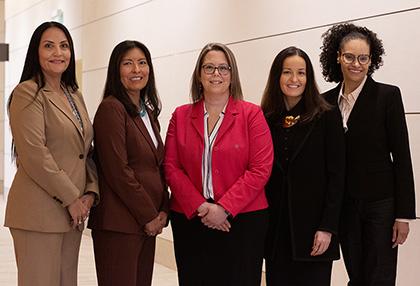
When Judge Diane J. Humetewa joined the federal judiciary in 2014, she made history as the first Native American woman to serve as a U.S. federal judge. Today, she is one of six sitting Native American federal judges, all of whom are women.
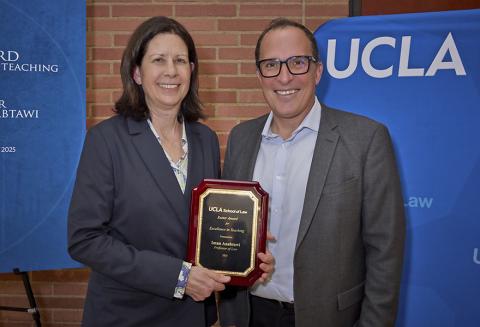
UCLA School of Law faculty and staff members, students, alumni, and friends gathered on April 23 to celebrate Professor Iman Anabtawi, who earned the 2025 Rutter Award for Excellence in Teaching. It is the law school’s highest honor for distinguished work in the classroom.
The event included speeches that emphasized Anabtawi’s exceptional warmth, commitment, and relationships with generations of law students.
-
Master of Legal Studies
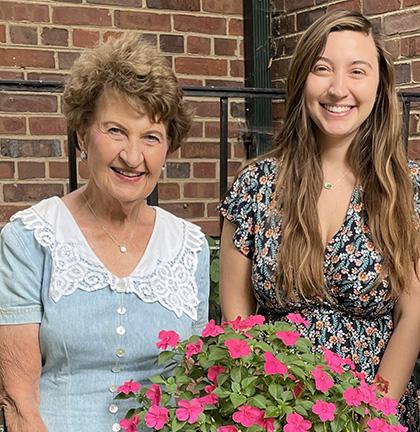
The Eaton fire that ignited in January struck close to home for second-year UCLA School of Law student Amber Grimmer ’26, damaging her 90-year-old grandmother’s house and devastating the Pasadena neighborhood where Grimmer spent vacations growing up.
“It was a very emotional and stressful experience for our whole family dealing with the impact of the fires and watching the neighborhood change so drastically,” says Grimmer. “For that reason, I was very motivated to give back to the Los Angeles community.”
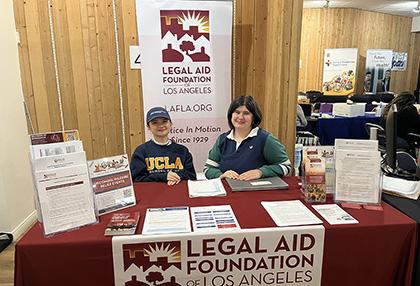
Robina Henson ’25 was motivated to help the community in the aftermath of the fires and has worked eight volunteer shifts. “Through this work, I have become better able to continue pro bono work in the tenants, immigration, and FEMA spaces, and I am grateful to LAFLA for partnering with UCLA to provide students with this opportunity,” she says.
In addition to gaining specific legal skills related to disaster relief, Grimmer, Henson, and their fellow students are learning how to address issues around meeting the needs of immigrant communities, protecting tenants’ rights, and addressing the lack of affordable housing.
“The community benefits from free legal assistance on critical areas thanks to the support of students volunteering at the DRC, and it’s wonderful to witness such a strong commitment among the next generation of lawyers,” says Carlos H. Valdes, the pro bono manager at LAFLA. “Many wildfire survivors seeking help would otherwise struggle to navigate legal processes on their own. This support can prevent homelessness, unfair evictions, and financial exploitation during this critical time.”
The students also attended trainings touching on non-legal matters, like how to work with people who have undergone trauma, which Grimmer says is essential to providing support for her grandmother and others.
“We learn about issues in class, but working directly with clients shows us that the law is personal and requires a human touch,” she says. “We are helping people rebuild their lives.”
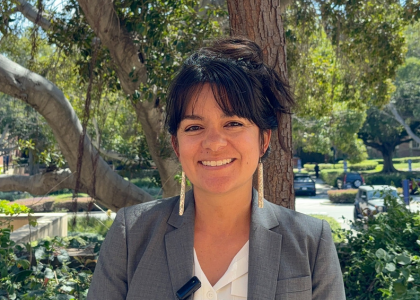
Lauren van Schilfgaarde ’12, assistant professor of law, assistant director of the Native Nations Law and Policy Center, and expert in tribal sovereignty and federal Indian law, has spent years studying how tribal courts integrate traditional practices with modern legal systems.
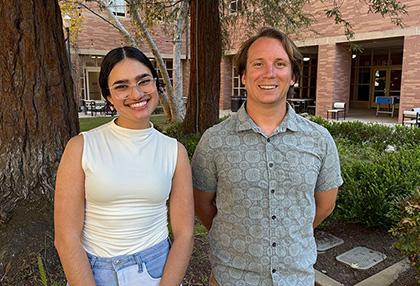
If you’re driving north through L.A.’s San Fernando Valley on I-5 and look left at Sun Valley, you can see a major source of air pollution hiding in plain sight. Giant mounds of crushed concrete loom like towers from scrap yards that are called aggregate recycling facilities.
-
J.D Environmental Law

Leondra Kruger, a trailblazing lawyer and jurist who serves as a justice on the Supreme Court of California, will deliver the keynote address to the Class of 2025 at UCLA School of Law’s commencement ceremony on May 16.
Kruger is one of the most accomplished and respected people in the law today.
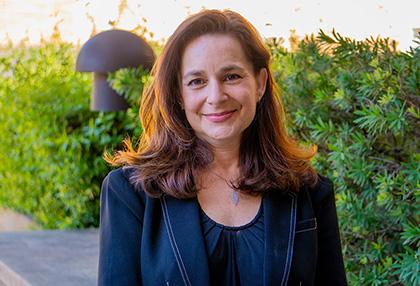
Orli Belman, a seasoned communications professional and UCLA graduate, has joined UCLA Law as the school’s assistant dean of communications.